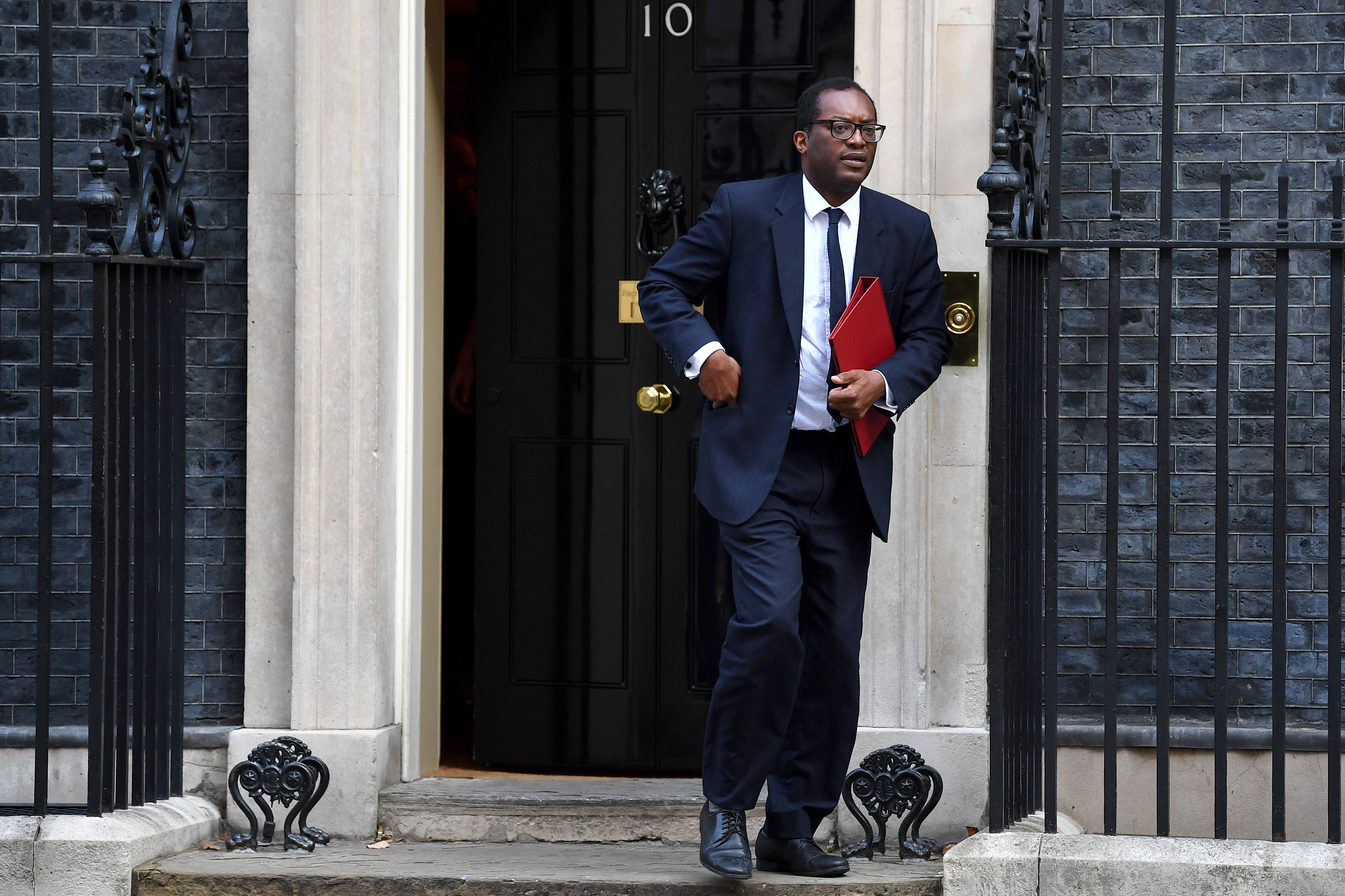Lib Dems accuse ministers of moving too slowly on Russian oil import ban
Business Secretary Kwasi Kwarteng announced on Tuesday that UK will phase out the import of Russian oil and oil products by the end of the year.

Your support helps us to tell the story
From reproductive rights to climate change to Big Tech, The Independent is on the ground when the story is developing. Whether it's investigating the financials of Elon Musk's pro-Trump PAC or producing our latest documentary, 'The A Word', which shines a light on the American women fighting for reproductive rights, we know how important it is to parse out the facts from the messaging.
At such a critical moment in US history, we need reporters on the ground. Your donation allows us to keep sending journalists to speak to both sides of the story.
The Independent is trusted by Americans across the entire political spectrum. And unlike many other quality news outlets, we choose not to lock Americans out of our reporting and analysis with paywalls. We believe quality journalism should be available to everyone, paid for by those who can afford it.
Your support makes all the difference.Ministers are moving too slowly in banning Russian oil imports over the the invasion of Ukraine, Liberal Democrat leader Sir Ed Davey said.
Business Secretary Kwasi Kwarteng announced on Tuesday the UK will phase out the import of Russian oil and oil products by the end of the year in a move matched by US President Joe Biden.
It comes as the West looks to tighten the squeeze on the Russian economy following Moscow’s invasion of Ukraine.
The Liberal Democrats criticised the Government for “moving too slowly” on punishing President Vladimir Putin, while several experts cast doubt over how effective such sanctions will be.
Labour welcomed the Government’s move as “the right decision”, but called for further action to tackle the cost of living crisis and to move towards clean energy.
Sir Ed said: “The Conservatives are once again moving far too slowly to punish Putin for his illegal invasion of Ukraine.
“It’s not good enough to only ban Russian oil, there must be a ban on Russian gas too.”
He said the invasion of Ukraine highlighted how Europe was “too dependent” on Russia and that the continent needs to invest in renewables to “end Europe’s addiction to Russian fossil fuels”.
Ed Miliband, the shadow climate secretary, said: “It is the right decision to ban imports of Russian oil. We need to do everything possible to isolate the Putin regime.”
But he added the decision now “reinforces the case for further action to tackle the cost of living crisis” in the UK as well as “underlines the need for a decisive move towards clean energy”.
Shadow foreign secretary David Lammy tweeted: “It’s right that the UK will phase out imports of Russian oil.
“We need to do everything possible to cut the Putin, his cronies and the rogue Russian regime out of our economic system.”
Boris Johnson suggested diesel prices could be set to rise further in Britain after the announcement, with prices at the pumps already having soared following Moscow’s attack on Kyiv.
But the Prime Minister said the UK was “less exposed” than some European nations when it came to restricting Russian oil – the European Union imports more than a quarter of its oil from Russia.
Speaking to broadcasters in London, Mr Johnson accepted the decision to target Moscow’s oil would not hit the Kremlin’s regime immediately, with Ukraine continuing to face assault, but said it would add to the “extreme” sanctions already levied.
The UK imported goods from Russia worth a total of £10.3 billion in 2021, according to the Office for National Statistics (ONS).
This was the equivalent of 2% of the total value of all imported goods from around the world.
No UK petrol demand comes from Russia, nor heating or fuel oil but 18% of the total demand for diesel comes from Russia, according to the Department for Business, Energy and Industrial Strategy.
Tom Keatinge, director of the RUSI Centre for financial crime and security studies, told the Foreign Affairs Committee on Tuesday that unless the EU imposed similar sanctions on Russia, UK and US sanctions could merely push up prices.
He said: “Someone pointed out to me yesterday that the rate at which commodity prices are rising at the moment, actually, Russia could sell a lot less but still earn just as much money.”
Justine Walker, global head of sanctions, compliance and risk at the Association of Certified Anti-Money Laundering Specialists, said: “If we’re to target oil, then I think there needs to be a much broader consensus.
“If you just have the US targeting oil or the UK targeting oil, then you are, as Tom says, you’re just going to drive up prices and actually will not be effective.”
Asked if this meant there was no point in imposing the sanctions without a broader international consensus from other players like the EU, Mr Keatinge said: “I think we shouldn’t lose sight of the fact, price is obviously a function of supply and demand.
“So what are we doing to work with suppliers to replace the capacity that gets lost from from from Russia – but clearly the EU needs to buy into that strategy.”
Meanwhile, Dr Chi Kong Chyong from the Energy Policy Research Group at Cambridge Judge Business School, warned that stopping the flow of Russian oil and gas into Europe may not be the “hammer blow” that Western countries are looking for.
In an article published to the University of Cambridge website on Tuesday, he said: “Europe is part of a global, increasingly commoditised market, in which trade embargoes by one region will not be effective if others don’t follow.”